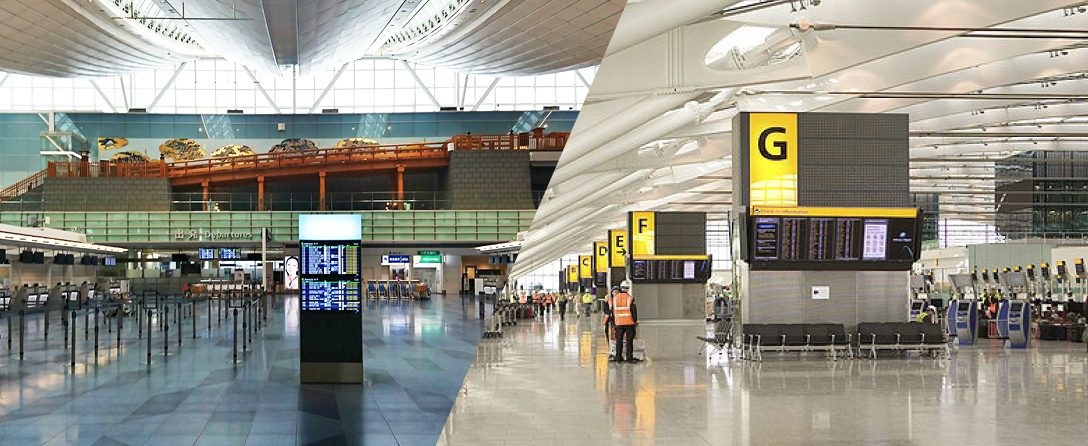
Haneda Airport (left) / Heathrow Airport (right)
Everchanging restrictions designed to slow the spread of the coronavirus have impacted travel between Japan and the UK yet again, media in both countries reported. Beginning 18 January, the British government requires anyone returning from a foreign country to provide journey and contact details through GOV.UK before departure. They must also self-isolate for two weeks on arrival.
Japan has implanted new restrictions as well. On 24 December, all new entries by foreign nationals who had been in the UK for 14 days prior were barred from entering due to a new Covid-19 strain that had been found in the UK on 8 December. Then Japan closed its borders to all new foreign entries on 28 December. No end date has been specified.
On 13 January, Prime Minister Yoshihide Suga implemented further entry rules for business travellers, students and all other non-resident foreign nationals from multiple countries, saying they will no longer be allowed into the country. Japanese nationals and long-term residents may still enter provided they have had a negative PCR test 72 hours before departure.
Vaccine progress
According to a 10 January article in Nikkei Asia, the British government believes the Japanese arthritis drug Actemra, also known as tocilizumab and atlizumab, is effective in treating Covid-19. It has been found to lower the mortality risk by 24% and shorten hospital stays by seven to 10 days.
The Japan Times reported on 9 January that the drug was developed jointly by Osaka University and the Japanese firm Chugai Pharmaceutical Co., Ltd. UK Secretary of State for Health and Social Care Matt Hancock has described the clinical trial results as another landmark development in finding a way out of the pandemic.